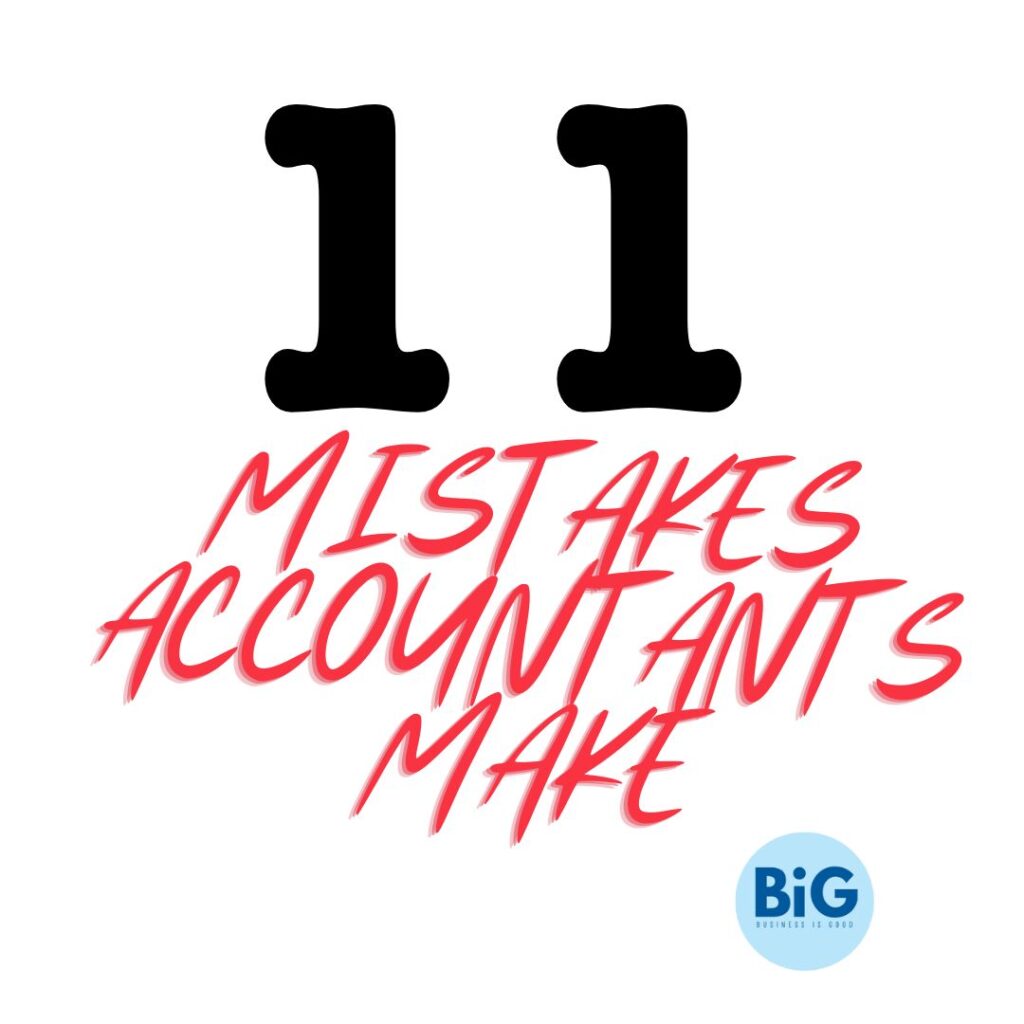It’s tax season, and this is your accountant’s time to shine.
But what if they’re not so shiny? Should you switch?
And how do you know?
I’ve worked with many different bookkeepers and accountants across several businesses, big and small. I’ve had tax specialists, fractional CFOs, financial mentors, CPAs and more. I’ve been through audits. I have accountants and bookkeepers on staff. Trust me: not all accountants are a 10 out of 10.
Here’s when to switch.
- They don’t make you more money than they charge you. An accountant should get you a good ROI. You should save more on taxes than you pay the accountant. This is how chain firms like HR Block stay in business doing personal taxes at scale. The accountant who does your business taxes should save you – or even get you a refund – higher than their fee (and usually many times more.) Accounting, like mentorship, is an investment–even if accounting is mandatory.
- They tell you to cut an expense without considering ROI. If your accountant looks at your balance sheet or P&L and says, “That cost seems high,” but doesn’t ask what you’re getting in return, then they don’t trust your judgment…or don’t have time to dig beyond surface level. Don’t cut the tree that feeds you.
- They’re slow to deliver your monthly P&L or your tax return. I get it: this is a busy time of year. But April doesn’t come as a surprise every year. If an accountant can’t deliver on time, it’s not because they’re taking extra time to comb through your numbers and save you a few dollars: it’s because they’re over capacity or disorganized.
- They never get a second opinion. My best accountant is quick to say, “Let me call an expert.” My worst accountant ever said “I know the answer to that…” in response to every question I could dream up. She didn’t actually know every answer. In many cases, she guessed – or automatically took the “safe” route.
- They charge too little for their service. If your accountant is charging less than $200 per month, she’ll need to take a lot of clients to make a professional income.
- They take too many clients. The more clients your accountant has, the less time they can spend on your business. That means surface-level overviews and no consideration for things like ROI or long-term strategy. When I was a college student, I lived in Canada but worked in the US. I didn’t know how to file my taxes in the US, so I went to a tax franchise that saw hundreds of clients. They gave me a return. I thought it was low. I Googled the question and found a better answer–in ten minutes, on 1996-era dial-up internet. When I took the printout back to the accountant, they changed my return and I got a larger refund. The accountant wasn’t dumb, just too busy to check. (The law is called the “closer connection exemption”, in case you need it.)
- You have a new accountant every month. If you’re working with a larger firm and your primary point of contact changes often, it’s either because they have churn (and are probably settling for anyone they can get) or they’re growing too fast (and are hiring anyone they can get.) The problem is that a new accountant won’t be familiar with your long-term strategy out of the gate, and might make short-term tactical recommendations that hurt you in the long run.
- They don’t explain when there are shades of gray. I once had an accountant tell me “offence wins games, defence wins championships” when I asked him about paying employees vs subcontractors. The real answer depends on several factors, but many accountants will take the easy route and just say “everyone is an employee.” Sometimes they don’t have time to carefully consider your situation; sometimes they’re just playing defence. And sometimes they’re right. But at the very least, a good accountant should explain why a law applies specifically to your case instead of giving you a blanket answer.
- You can’t book a call with them to discuss your numbers. This is your business and your livelihood. You should ask questions until you’re satisfied with the answers. They should not have an “email-only” policy, even in April.
- They won’t tailor your P&L or balance sheet or income statement to make it more useful. We give gym owners a “chart of accounts” – basically, a simple P&L – to share with their accountant. It’s a paint-by-numbers template that highlights what’s actually important. But a few accountants simply won’t use it–not because theirs is better, but because they’re running a high-caseload industrial model that can’t handle differentiation.
- They get emotional or defensive when you ask questions about your numbers. One of the great questions you can as your accountant is, “How can I improve the ROI I get on our time together?” If anyone knows the answer to this, it should be your accountant. But if the accountant gets offended when you ask, or tries to justify what you’re currently paying, then you know they’re making emotional decisions instead of remaining objective. And you don’t want an emotional accountant.
Most people believe our tax laws are black and white. They’re not. They’re unnecessarily complex; they’re subjective (two different auditors will make two different decisions with the same numbers); and they’re malleable. Though most entrepreneurs are scared of their numbers, you should remember: you’re dealing with humans here. If you’re audited, you’ll be dealing with a human. Your accountant is human too. Find the best match for you instead of marrying the first one you find.


